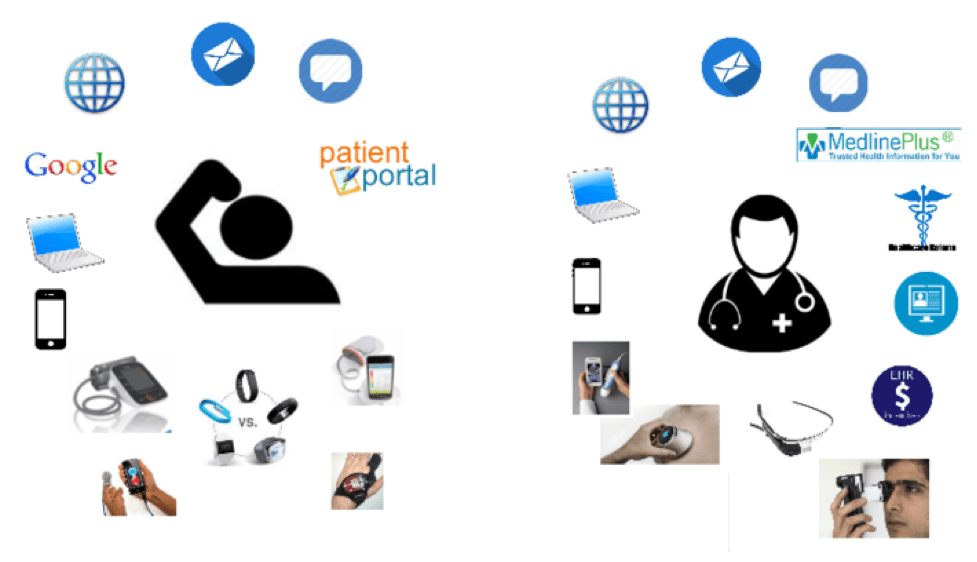Telemedicine has revolutionized the healthcare industry, allowing patients from distant locations to receive medical care remotely. This technology has made healthcare more accessible and convenient for patients who may not have access to physical healthcare facilities. However, as the world becomes more interconnected, many people are wondering whether it is possible to practice telemedicine abroad.
The answer to this question is not straightforward. While telemedicine can theoretically be practiced from anywhere, there are a number of factors that can impact its viability. In this article, we will explore the legal and practical considerations that need to be taken into account if you want to practice telemedicine abroad. We will also look at some of the challenges you may face, as well as the benefits of practicing telemedicine in a different country. So, if you are a healthcare professional looking to expand your practice internationally, read on to find out whether telemedicine is a viable option for you.

What is Telemedicine?
Telemedicine is a type of healthcare delivery system that enables medical professionals to provide remote diagnosis and treatment to patients. It involves the use of digital technology, such as video conferencing, phone calls, and texting, to diagnose and treat medical conditions. Telemedicine has become increasingly popular as it can improve access to quality healthcare and reduce costs.
Telemedicine is a great way to provide healthcare to those who don’t have access to a hospital or clinic. It can also help to reduce wait times and give people the opportunity to get the care they need without having to travel. It is especially useful for those who live in remote or rural areas.
Can You Practice Telemedicine Abroad?
Advantages of Practicing Telemedicine Abroad
Practicing telemedicine abroad has many advantages. It allows medical professionals to expand their reach and provide services to those who otherwise would not have access to them. Furthermore, it can help to reduce healthcare costs by reducing the need for travel and other expenses associated with traditional healthcare.
It can also help to reduce wait times and improve access to quality healthcare. Telemedicine can be used to diagnose and treat medical conditions quickly and efficiently, allowing patients to receive the care they need without having to wait for an appointment. Additionally, it can help to reduce the risk of medical errors and reduce the need for costly and time-consuming laboratory tests.
Can You Practice Telemedicine Abroad Legally?
The answer to this question depends on the laws in the country in which you are practicing. In some countries, telemedicine is allowed and regulated by the government. In other countries, it may be prohibited or have certain restrictions. It is important to research the laws in the country where you will be practicing telemedicine to ensure that you are in compliance with the regulations.
It is also important to consider other factors, such as the level of technology available. In some countries, the technology available may not be sufficient to provide the quality of care that is needed. Additionally, there may be cultural and language barriers that may make it difficult to provide effective healthcare. It is important to be aware of these issues before practicing telemedicine abroad.
Frequently Asked Questions
Telemedicine allows medical professionals to assess, diagnose, and treat patients remotely. In the current situation of the world, this technology has been used to help the medical staff handle cases that would otherwise be difficult to manage.
Can I Practice Telemedicine Abroad?
Yes, you can practice telemedicine abroad. However, it is important to understand the local laws and regulations in the country in which you are working. Depending on the country, you may need to obtain a license or certification in order to practice telemedicine. Additionally, it is important to understand the privacy laws and regulations of the country, as well as any other laws that may apply to the practice of telemedicine.
You will also need to make sure that you have the necessary infrastructure and equipment in place in order to provide the best possible care to your patients. This may include reliable internet access, a secure video conferencing platform, and other necessary equipment. Additionally, you will need to ensure that you are providing quality care to your patients and that you are meeting the standards of the country in which you are practicing.
In conclusion, the advancement of technology has made telemedicine a viable option for healthcare professionals to provide medical services to patients worldwide. While the practice of telemedicine abroad may present some legal and regulatory challenges, it is not impossible. With careful planning, healthcare professionals can navigate the legal and regulatory hurdles to provide quality medical care to patients in need, regardless of their location.
As we continue to grapple with the COVID-19 pandemic, telemedicine has become more crucial than ever before. It has proven to be an effective tool in providing medical care to patients in remote locations, reducing the spread of the virus, and ensuring the safety of healthcare providers. Therefore, it is essential that healthcare professionals embrace telemedicine as a vital aspect of modern-day healthcare and take advantage of the opportunities it presents to provide medical services to patients worldwide.


